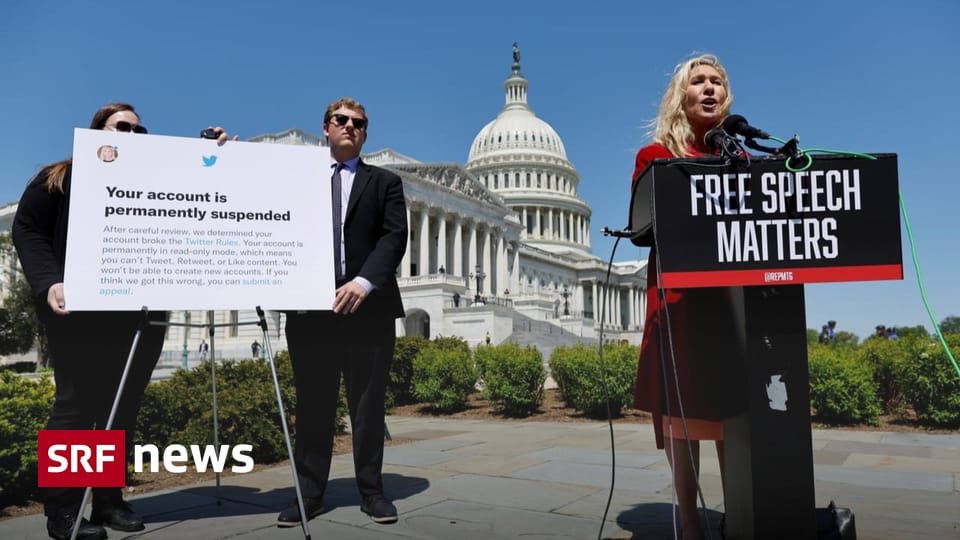At first, the big tech companies were a thorn in the side of liberals and leftists. They are actually throwers of fake news and characterize right-wing populist and far-right populist content using their algorithms – because these algorithms grab attention and make them stay longer and thus are good for business.
Criticism has changed direction
Meanwhile, some social media platforms have started filtering out some problematic content. Former President Donald Trump has also been banned from some platforms – notably: from Twitter – after he supported the storming of the Capitol in Washington on January 6, 2021.
Since then, criticism directed at technology companies has turned on its part. Republican politicians suddenly complain that conservative views are being systematically suppressed. Florida and Texas even passed laws banning Facebook, Twitter, Instagram, YouTube, TikTok and Co. From monitoring content and censoring it if necessary.
Their argument: Social media platforms are essentially nothing more than phone companies in the 21st century. They have no right to influence what citizens feed into their channels. And they talk about Silicon Valley’s censorship, where they see a general affinity with left-liberal concerns.
There is no obligation on the state
For their part, tech companies argue that they should not be obligated to distribute content that supports racist theories, recruits terrorists, denies the Holocaust, crafts hate speech and lies, or promotes Putin’s propaganda. They demanded clarification from the court.
The corresponding law in Florida was overturned by a lower court, the law that exists in Texas now even by the Washington Supreme Court. Essentially, senior justices referred to the constitutional amendment, which upholds the right to freedom of expression and defines it more comprehensively than in most European countries.
According to the Supreme Court, this right also means that social media platforms – just like newspapers, radio and television stations – are free to decide for themselves what they want to publish and what they do not want to publish. The state cannot obligate any channel on the Internet to publish certain content, but to a small extent it censors it.
Discussion continues
However, the Supreme Court’s ruling was narrow, with a majority of five to four votes. Interestingly, this time a liberal judge voted with three fellow conservatives who wanted to keep Texas law in place.
So the debate continues, as both the left and the right want regulations for tech companies. But the Supreme Court is now setting a stake. In favor of freedom of expression and publication.

“Tv specialist. Friendly web geek. Food scholar. Extreme coffee junkie.”







More Stories
Italy: State broadcaster RAI in crisis over Meloni – News
North Korea has a new (propaganda) song, sorry sausage
Plane from Olympic Airlines: Ellinikon's Boeing 727 is designed in a new location